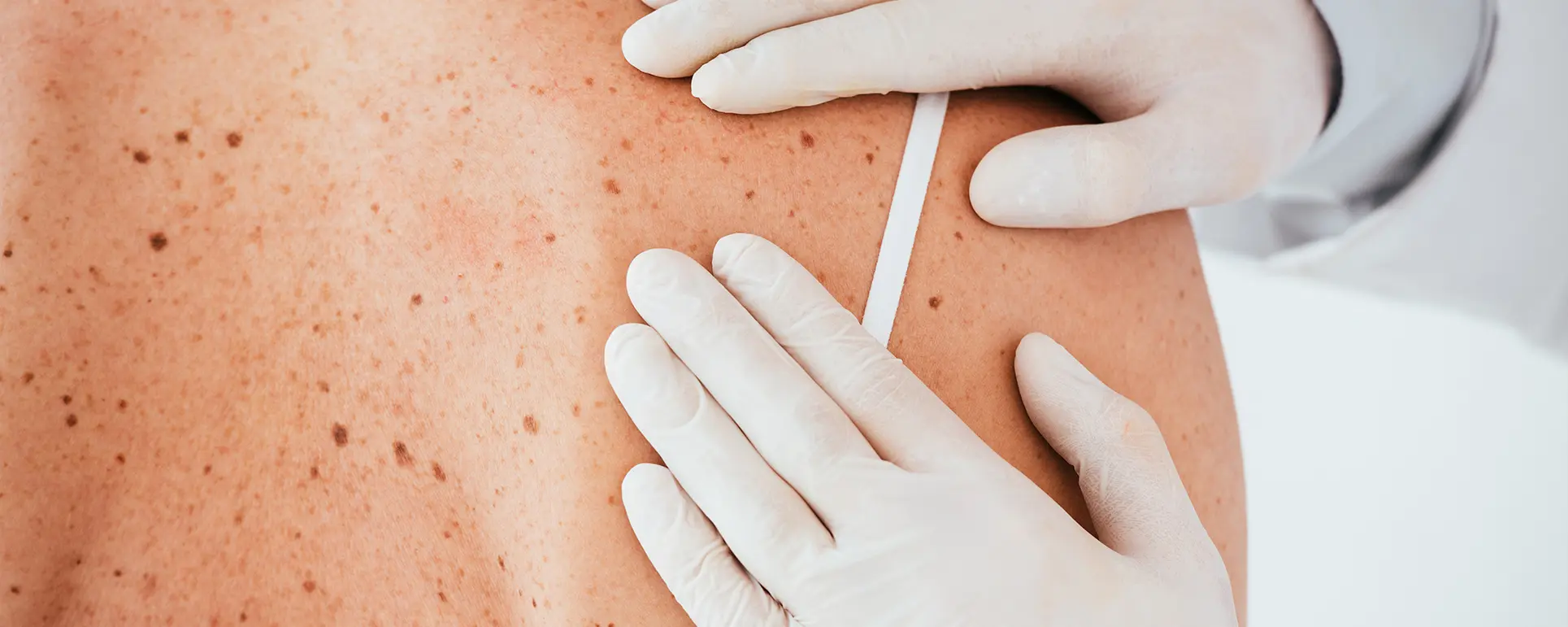When it comes to looking after your skin, the terms dermatologist, skin doctor, and skin specialist are often used as if they mean exactly the same thing. It’s common to hear people say they’re “going to see a skin specialist” when what they really mean is a dermatologist, or vice versa. At first, this might not seem like a big deal after all, both deal with the skin, right? But in reality, there are important distinctions in qualifications, training, and the type of care each professional can provide.
Your skin is your body’s largest organ and one of the most visible parts of who you are. It’s not only a protective barrier against the outside world but also a reflection of your internal health. Rashes, acne breakouts, persistent dryness, or sudden changes in moles can signal anything from hormonal imbalances to serious medical conditions. Because of this, the person you choose to trust with your skin can make a significant difference in how effectively your concerns are diagnosed and treated. Understanding whether you need a medically trained dermatologist or a more cosmetically focused skin specialist is the first step toward getting the right care.
A dermatologist is a fully qualified medical doctor who has completed years of rigorous training in the diagnosis, treatment, and prevention of diseases affecting the skin, hair, and nails. In the UK, for example, dermatologists first complete medical school, followed by several years of specialised dermatology training and hospital-based experience. This allows them to treat complex medical conditions such as eczema, psoriasis, skin cancer, severe acne, and rare skin disorders. They are also qualified to perform surgical procedures, prescribe powerful medications, and use advanced medical technologies for both medical and cosmetic concerns.
A skin specialist, on the other hand, is a broader, more loosely defined term. It can refer to a range of professionals, including aestheticians, beauty therapists, and cosmetic practitioners, whose expertise lies primarily in improving the appearance of the skin rather than treating medical conditions. Skin specialists may provide treatments such as facials, chemical peels, laser therapy for pigmentation, or non-surgical anti-ageing procedures. While many of these treatments can produce excellent cosmetic results, the training required to become a skin specialist is not as extensive as that of a dermatologist, and the scope of practice is usually limited to non-medical services.
1. What Is a Dermatologist?

A dermatologist is a medically qualified doctor who specialises in the diagnosis, treatment, and prevention of conditions that affect the skin, hair, and nails. Unlike beauty therapists or cosmetic practitioners, dermatologists are trained medical professionals with years of advanced education behind them, which allows them to handle everything from everyday concerns like acne to serious diseases such as skin cancer.
To become a dermatologist in the UK, a person must first complete a full medical degree, which typically takes five to six years. After medical school, they enter a period of foundation training two years of supervised clinical work across different areas of medicine. Only after this stage can they apply for specialist dermatology training, which involves an additional four years (sometimes more) of rigorous postgraduate study focused exclusively on skin-related diseases and treatments. Throughout this time, they gain in-depth knowledge of dermatopathology (the study of skin diseases under a microscope), paediatric dermatology, cosmetic dermatology, and surgical procedures.
All qualified dermatologists in the UK are registered with the General Medical Council (GMC), which ensures they meet strict professional and ethical standards. Many are also members of professional organisations such as the British Association of Dermatologists (BAD), which requires ongoing education and training to keep up with new medical research and treatment techniques.
Because of this extensive training, dermatologists are uniquely qualified to manage a wide range of conditions. They can diagnose complex rashes, chronic disorders like eczema or psoriasis, autoimmune diseases affecting the skin, severe acne, hair loss, nail infections, and suspicious moles that could indicate melanoma or other types of skin cancer. Their medical licence allows them to prescribe strong medications, such as isotretinoin for severe acne or immunosuppressants for inflammatory skin conditions, which cannot be prescribed by non-medical skin specialists.
Dermatologists are also skilled in performing both medical and surgical procedures. These include mole removal, skin biopsies, cryotherapy for warts, excision of skin cancers, and advanced laser treatments. Many dermatologists additionally offer cosmetic services such as chemical peels, fillers, or Botox injections making them a one-stop solution for both medical and aesthetic skin concerns.
In short, a dermatologist represents the highest level of authority when it comes to skin health. Whether you need an accurate diagnosis for a mysterious rash, treatment for a chronic condition, or surgical removal of a suspicious growth, a dermatologist has the medical expertise, diagnostic tools, and legal authority to provide comprehensive care and ensure your skin is treated safely and effectively.
2. What Does “Skin Specialist” Mean?

The term skin specialist is far less clearly defined than the title of dermatologist, and this is where confusion often begins. Unlike dermatology, which is a recognised medical specialty with strict training and certification requirements, “skin specialist” is more of a catch-all phrase that can describe a wide range of professionals who work with the skin in different capacities.
In everyday language, a skin specialist might refer to:
- Dermatologists themselves – Many people use the term as a more casual way of saying dermatologist, especially if they are unsure of the correct medical title.
- General practitioners (GPs) with an interest in dermatology – Some GPs take additional short courses or develop experience in treating common skin problems such as acne, eczema, or minor infections. While they can manage mild to moderate conditions and provide prescriptions, they do not have the years of specialist dermatology training required to diagnose or treat complex skin diseases.
- Aesthetic or cosmetic practitioners – This is perhaps the most common use of the term in beauty and wellness settings. It includes beauty therapists, cosmetic doctors, nurses, or aestheticians who provide treatments like facials, microdermabrasion, chemical peels, microneedling, or injectables such as Botox and dermal fillers. Their focus is usually on improving the appearance of the skin enhancing texture, reducing fine lines, fading pigmentation, or managing mild breakouts rather than diagnosing or treating medical conditions.
The key difference lies in training and scope of practice. While dermatologists spend over a decade in formal education and supervised clinical work, many skin specialists complete shorter vocational or cosmetology courses that can range from a few months to a couple of years. Cosmetic doctors and nurses may have medical backgrounds but typically lack the advanced diagnostic training required to recognise serious conditions like skin cancer. Beauty therapists and aestheticians, although skilled in delivering non-medical treatments, cannot prescribe medication, order lab tests, or perform surgical procedures.
This does not mean that skin specialists are not valuable. For many people, they play an important role in cosmetic skin care, offering treatments that boost confidence and improve overall skin health. Regular facials, chemical peels, and laser treatments can help with issues like dullness, enlarged pores, or mild acne scarring. However, if your concern involves unexplained rashes, persistent infections, suspicious moles, or any condition that may require prescription medication or a biopsy, a dermatologist not a general “skin specialist” is the safest and most appropriate choice.
In summary, while a skin specialist may provide excellent cosmetic results and help maintain healthy, glowing skin, they do not replace the medical expertise of a dermatologist. Knowing this distinction is crucial when deciding where to seek help, especially if your skin issue could be more than just a surface-level concern.
3. Why the Difference Matters
Understanding the difference between a dermatologist and a skin specialist is more than just learning two different titles it can directly influence the results of your treatment, the accuracy of your diagnosis, and even your long-term health. Choosing the right professional from the start can save you time, money, and unnecessary worry.
Medical Conditions:
If you’re experiencing symptoms such as persistent acne, eczema flare-ups, psoriasis, unusual rashes, suspicious moles, or sudden hair loss, a dermatologist is the safest and most appropriate choice. Their years of medical training mean they can accurately identify complex conditions, prescribe powerful medications when required, and perform procedures such as biopsies or mole removals to rule out serious illnesses like skin cancer. They are also able to investigate underlying causes, such as hormonal imbalances or autoimmune disorders, which may be contributing to your skin problems.
Cosmetic Concerns:
If your primary goal is to refresh or enhance your appearance perhaps by reducing fine lines, improving texture, fading pigmentation, or simply achieving a brighter complexion a skin specialist such as an aesthetician or cosmetic practitioner may be able to help. These professionals focus on non-medical treatments such as facials, chemical peels, microdermabrasion, laser therapy, or injectables. While they cannot diagnose or treat medical conditions, they can provide effective, targeted treatments to improve the overall look and feel of your skin.
Safety and Accuracy:
Skin issues can sometimes be more serious than they appear. A mole that looks harmless might be an early sign of melanoma, or what seems like a simple rash could indicate an underlying autoimmune disease. Misdiagnosis or delayed treatment in such cases can have serious, even life-threatening, consequences. This is why seeking medical expertise from a dermatologist is crucial whenever there is a possibility of a health-related concern. Their ability to combine visual assessment with medical testing ensures that nothing important is missed.
In short, while both dermatologists and skin specialists play valuable roles in skin care, knowing when to see each professional is key. Cosmetic treatments can enhance your appearance, but only a dermatologist can provide the medical evaluation and treatment necessary to protect your skin’s health for the long term.
4. Training and Qualifications
One of the biggest differences between a dermatologist and a skin specialist lies in their training and professional background. The path to becoming a dermatologist is long and highly regulated, whereas the requirements for other skin specialists can vary widely.
Dermatologists:
Dermatologists are fully qualified medical doctors. In the UK, this means completing a five- to six-year medical degree followed by at least two years of foundation training in hospitals and clinics. After this, they undergo a minimum of four additional years of specialist dermatology training, which focuses on diagnosing and treating a wide range of skin, hair, and nail conditions. Many go on to sub-specialise further in areas such as paediatric dermatology, skin cancer surgery, or cosmetic dermatology. To practise, all dermatologists must be registered with the General Medical Council (GMC) and meet strict standards of ongoing education and professional conduct. Their extensive medical background allows them to diagnose complex skin diseases, prescribe medications, and perform both surgical and non-surgical treatments.
Skin Specialists (non-dermatologists):
The term “skin specialist” covers a broad range of professionals, and their qualifications vary greatly. Training might involve short vocational courses lasting a few weeks, diploma programmes over several months, or advanced aesthetic qualifications that can take a year or more. Some may be nurses or doctors who have chosen to focus on cosmetic treatments, while others are beauty therapists with expertise in skincare. Their work typically centres on non-medical procedures such as chemical peels, dermal fillers, microneedling, laser treatments, and personalised skincare advice. Although many are highly skilled in these areas, most are not medically qualified to diagnose medical conditions, prescribe prescription-strength treatments, or perform surgical procedures.
In short, dermatologists have a rigorous medical education and regulatory oversight, whereas skin specialists may have excellent cosmetic expertise but lack the medical training required to treat serious or complex skin problems. Knowing these differences can help you choose the right professional for your specific needs.
5. When to See a Dermatologist vs a Skin Specialist
Knowing whether to book an appointment with a dermatologist or a skin specialist can save you time, money, and unnecessary worry. The right choice depends largely on whether your concern is medical or cosmetic.
See a Dermatologist if:
- You have a persistent rash, unexplained skin changes, or a mole that looks suspicious. These symptoms may indicate infections, autoimmune conditions, or even skin cancer, which require medical evaluation and possible testing.
- You suffer from chronic skin conditions such as acne, rosacea, psoriasis, eczema, or severe dermatitis. Dermatologists can prescribe prescription-strength medications, perform biopsies, and create tailored treatment plans that go beyond over-the-counter options.
- You want medical-grade treatments that only a doctor can provide. This includes prescription creams, oral medications, minor surgeries, and advanced procedures like mole removal, cryotherapy, or laser treatments for medical conditions.
- You need a professional to diagnose a complex or unclear skin issue. Dermatologists are trained to identify subtle signs of disease and to rule out underlying health problems that may be affecting your skin.
See a Skin Specialist if:
- Your main goal is cosmetic improvement for example, you want to refresh your complexion with facials, chemical peels, microneedling, or injectables like dermal fillers or Botox.
- You are looking for skincare maintenance and non-medical advice, such as personalised product recommendations, deep-cleansing treatments, or help with mild issues like dullness or uneven texture.
- You want to enhance your skin’s appearance without medical intervention, whether that’s reducing fine lines, boosting hydration, or achieving a healthy glow before a special occasion.
In simple terms, a dermatologist is the right choice when there is any possibility of a medical condition or when prescription treatments might be needed. A skin specialist is ideal when you’re seeking appearance-focused treatments or ongoing skincare maintenance. If you’re unsure, starting with a dermatologist can provide peace of mind, as they can rule out serious conditions and, if appropriate, recommend safe cosmetic options.
6. Choosing the Right Care for You
Your decision should always begin with a clear understanding of your needs. If your concern is health-related such as a persistent rash, a changing mole, unexplained hair loss, or a chronic condition like eczema or psoriasis a qualified dermatologist is the safest and most appropriate choice. Their medical training ensures accurate diagnosis, access to prescription treatments, and the ability to perform procedures if necessary.
For cosmetic improvements, such as brightening dull skin, softening fine lines, or refining texture, a skin specialist can be a good option. Treatments like facials, chemical peels, microneedling, or injectables can deliver noticeable results when carried out by an experienced professional. However, it’s essential to confirm that the practitioner is properly trained, certified, and reputable. Check their credentials, ask about their qualifications, and ensure they follow strict hygiene and safety protocols.
In some cases, you may benefit from a combination of care starting with a dermatologist for a medical assessment and then working with a trusted skin specialist for ongoing cosmetic maintenance. By understanding the difference and taking time to research your provider, you can protect your health while achieving the best results for your skin.
Final Thought: Making the Right Choice for Your Skin Health
While the terms dermatologist and skin specialist are sometimes used interchangeably, the differences are significant. Dermatologists are fully qualified doctors trained to treat a wide range of medical skin conditions, whereas skin specialists may focus more on cosmetic or aesthetic treatments.
If you’re unsure who to consult, visiting an experienced dermatologist in London ensures you receive safe, expert care tailored to your needs.
References:
- Porriño-Bustamante, M.L., 2023. What do dermatologists and dermatology residents think about the current state of dermatology training? Journal of the European Academy of Dermatology and Venereology, 37(5), pp. 1-3. Available at: https://pmc.ncbi.nlm.nih.gov/articles/PMC10773702/
- Lee, R.H., 2024. Multidisciplinary Training in Dermatology. Journal of the American Academy of Dermatology, 91(1), pp. 1-7. Available at: https://pmc.ncbi.nlm.nih.gov/articles/PMC11260650/
- Rajabi-Estarabadi, A., 2020. Dermatologist transitions: Academics into private practices. Journal of the American Academy of Dermatology, 83(3), pp. 1-7. Available at: https://www.sciencedirect.com/science/article/abs/pii/S0738081X20301000
- Byrne-Davis, L., 2022. Evaluating dermatology education and training. Clinical and Experimental Dermatology, 47(12), pp. 2096-2104. Available at: https://academic.oup.com/ced/article/47/12/2096/6966248
- Khalil, N., 2025. Can the real dermatologists please stand up?. Clinical and Experimental Dermatology, 50(1), pp. 1-3. Available at: https://academic.oup.com/ced/advance-article/doi/10.1093/ced/llaf315/8196278
